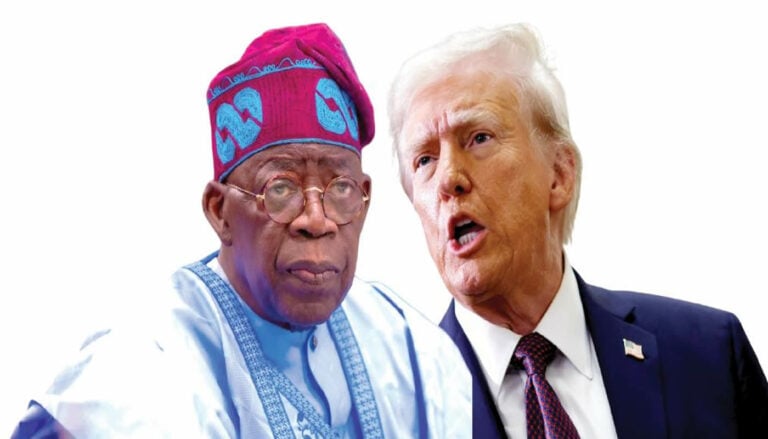Twelve northern governors, top judges, and traditional rulers could face United States sanctions as the U.S. Congress considers a bill accusing them of complicity in alleged “Christian genocide” and systemic persecution under Nigeria’s Sharia and blasphemy laws.
The move follows President Donald Trump’s redesignation of Nigeria as a Country of Particular Concern (CPC) and his directive to Secretary of State Marco Rubio to act swiftly. Trump had expressed outrage over the killing of Christians in Nigeria and ordered U.S. lawmakers to investigate.

Sponsored by Senator Ted Cruz, the Nigeria Religious Freedom Accountability Act of 2025 seeks direct sanctions against public officials and religious figures accused of enabling or tolerating violence against Christians and minorities.
If passed, the law—anchored under the Global Magnitsky Human Rights Accountability framework—could lead to visa bans, asset freezes, and financial restrictions for affected Nigerian officials.

The bill identifies the expansion of Sharia law in 12 northern states since 1999 as a major driver of religious oppression. These states include Zamfara, Kano, Sokoto, Katsina, Bauchi, Borno, Jigawa, Kebbi, Yobe, Kaduna, Niger, and Gombe.
While defending the measure, Senator Cruz accused Nigerian authorities of “institutionalising Sharia law and enabling jihadist violence,” claiming over 52,000 Christians have been killed and 20,000 churches destroyed since 2009.

The Nigerian government, however, rejected the allegations. In a statement, the Ministry of Foreign Affairs insisted that Nigeria remains a multi-religious democracy where freedom of religion is constitutionally protected. It maintained that Sharia applies only to Muslims and operates within constitutional limits.
According to the statement, “Non-Muslims are not subject to Sharia-based criminal laws, and there is no federal offence of blasphemy in Nigeria.” The government added that Christian institutions operate freely and that violent attacks often described as “religious” are, in reality, acts of terrorism or banditry.

Despite the defence, the U.S. bill cites multiple incidents of mob killings and death sentences for alleged blasphemy in northern Nigeria, referencing cases such as the 2022 murder of Deborah Samuel in Sokoto.
Trump, in a post, warned that the U.S. would suspend all aid to Nigeria and could take military action if killings of Christians continued. “Either the Nigerian Government protects Christians, or we will kill the Islamic terrorists committing these atrocities,” U.S. Secretary of War Pete Hegseth echoed on Sunday.
The proposed law mandates that Nigeria, Boko Haram, and ISIS-West Africa be classified as “Entities of Particular Concern” under the International Religious Freedom Acts of 1998 and 2016.
Presidential spokesman Daniel Bwala confirmed that President Bola Tinubu would meet Trump soon to discuss counterterrorism cooperation and address U.S. concerns about religious violence.
Meanwhile, foreign policy experts warned that the designation could damage U.S.-Nigeria relations, cut foreign aid, and strain military cooperation.
Former ambassador Mohammed Mabdul noted that the sanctions “could reduce U.S. support for socio-economic programmes and security operations,” while ex-diplomat Ogbole Amedu-Ode said the situation “must serve as a wake-up call for Nigeria to better protect lives and prevent religious extremism.”




